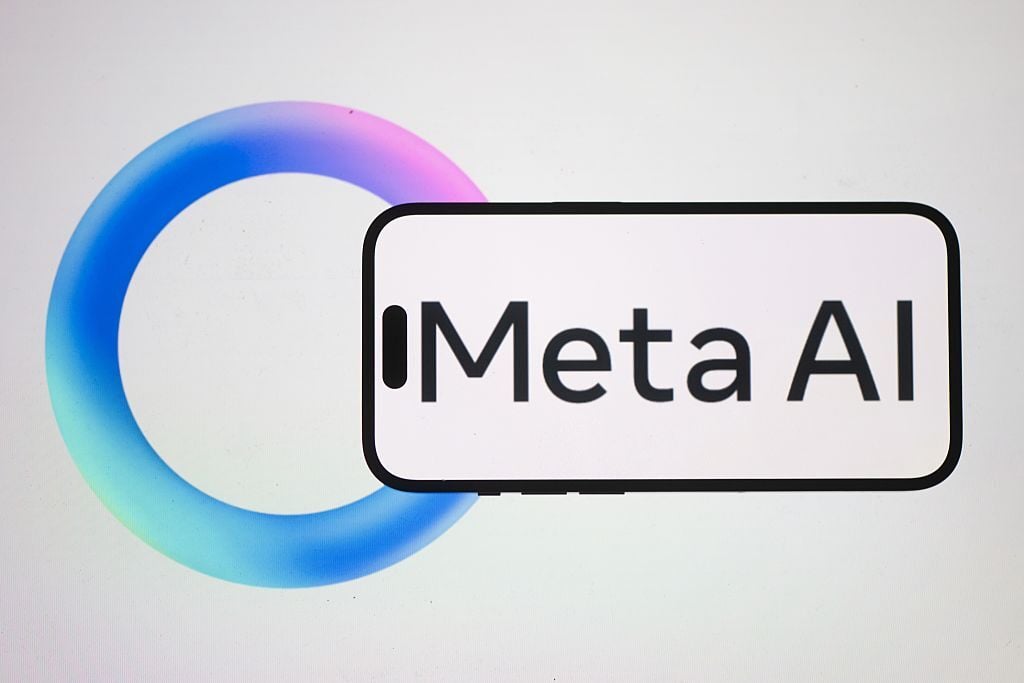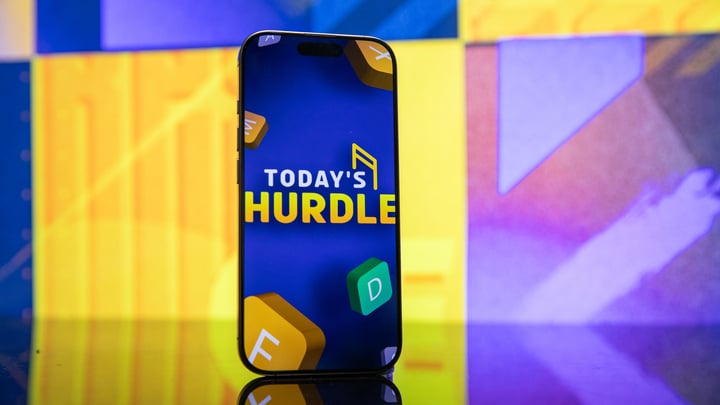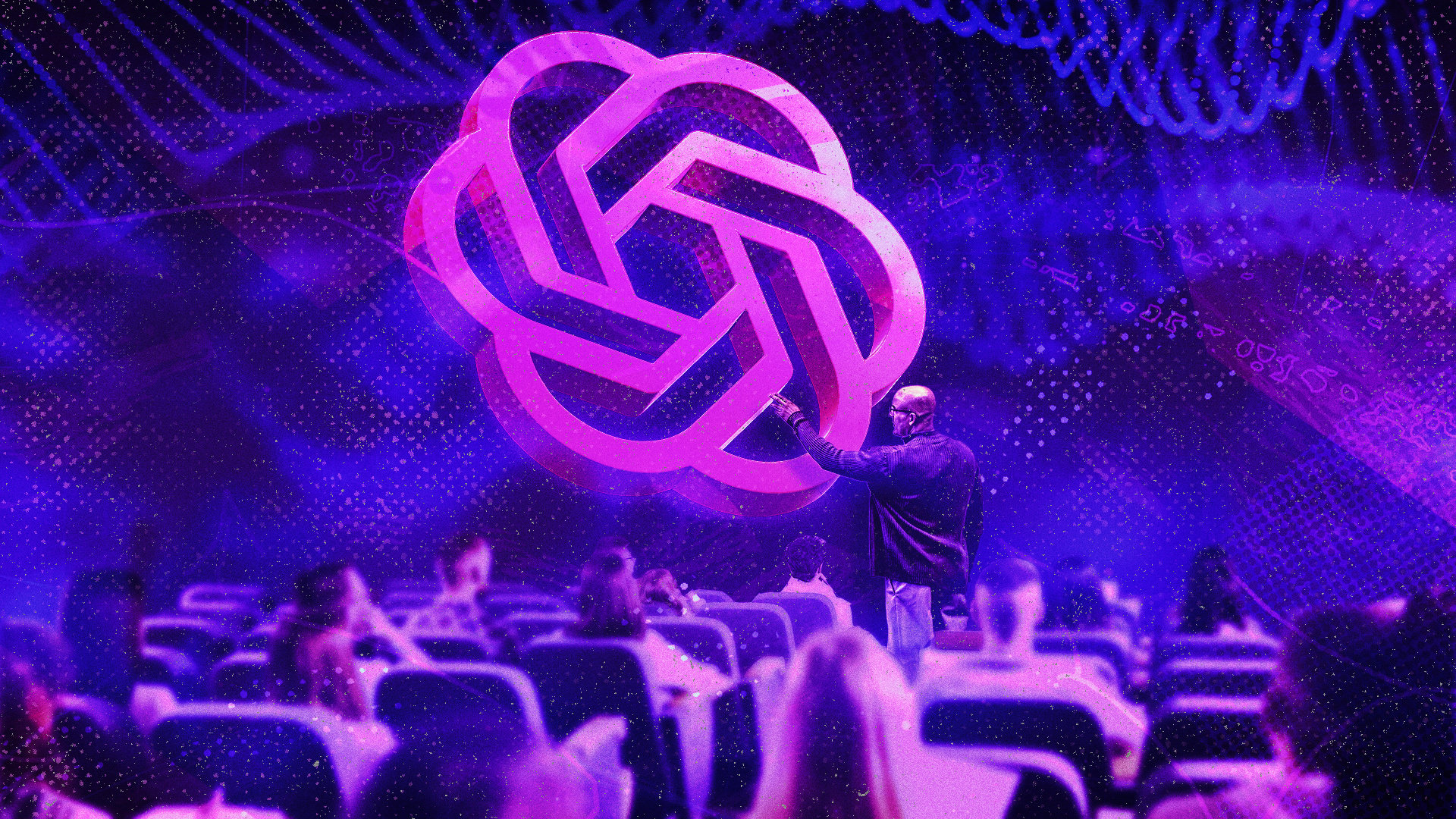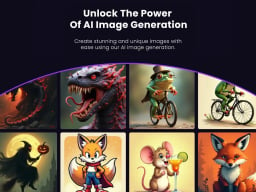Tech
The Kadrey v. Meta fair use ruling is just the start of a long, complex AI copyright battle

On Wednesday, the judge in the landmark AI copyright case Kadrey, et al. v. Meta Platforms Inc. ruled in Meta’s favor. And U.S. District Judge Vince Chhabria seemed to do so reluctantly, calling his own ruling “in significant tension with reality.”
Thirteen authors, including Sarah Silverman, Ta-Nehisi Coates, and Junot Diaz, sued Meta for its unlicensed use of their books to train its Llama AI models.
The facts of the case seemed particularly egregious. Not only did Meta pirate unlicensed copies of the authors’ works, but internal Meta messages revealed during discovery showed that the company's own employees expressed legal and ethical doubts about pirating those works. Other messages suggest that employees sought to eliminate traces of piracy, looking for words like "stolen" and "pirated" as part of the team's "mitigation" efforts.
Instead of settling the messy copyright battle over AI training, Chhabria's ruling adds another layer of complexity to this legal issue.
Just a day earlier, a judge in a similar AI copyright case ruled in favor of another AI company, Anthropic. In the same Northern District of California, U.S. District Judge William Alsup declared in Bartz v. Anthropic that Anthropic's use of pirated books in shadow libraries Books3 and LibGen (the same datasets in the Meta case) was fair use.
However, Robert Brauneis, an intellectual property law professor at George Washington University Law School, said Judge Alsup and Judge Chhabria used dramatically different reasoning. Both cases hinged on the fair use legal doctrine, particularly the fourth factor in such defenses — potential market harms.
"Judge Alsup has a very narrow view: if a generative AI output does not itself infringe a particular work used to train the model, any loss in sales of the training work caused by people using the AI output instead cannot be taken into account as 'market harm' under the fourth factor," said Brauneis, who was among a group of copyright lawyers that filed an amicus brief in support of plaintiffs in Kadrey v. Meta.
"Judge Chhabria says that's wrong: harm caused by 'diluting' the market for a training work can and should be taken into account, and serious market dilution harm can even outweigh a high level of transformativeness under the first factor."
So while both judges sided with the fair use argument, their opposing rationales lay the groundwork for a complex and fragmented legal landscape.
The Kadrey plaintiffs whiffed on the fair use argument
The plaintiffs tried, and failed, to argue against Meta’s fair use defense. In a blog post written after the May 1 oral arguments, Kevin Madigan, senior VP of policy and government affairs for the Copyright Alliance, wrote that the plaintiff’s lawyer “shockingly” failed to present potential counterarguments.
Of the four fair use factors, the case mostly hinged on factor one, whether the use is transformative, and factor four, whether the use harms the existing or future market for the copyrighted work. Chhabria favored Meta on factor one. "There is no serious question that Meta’s use of the plaintiffs’ books had a 'further purpose' and 'different character' than the books — that it was highly transformative," said Chhabria in his ruling.
The deliberation then turned to the fourth factor, or market harms, where Chhabria had much to say about the plaintiff's counsel's argument. They simply failed to successfully argue that Meta caused market harm.
In discussing market harms during oral arguments, Chhabria brought up a hypothetical — future Taylor Swifts.
"Even if a million songs are produced by [Meta's Llama] model in the style of a Taylor Swift song, it's not going to affect the market for Taylor Swift songs. But what about the next Taylor Swift?" Chhabria asked Meta lawyer Kannon Shanmugam. "What about the up-and-coming, relatively unknown artist who is writing songs… and by feeding copyrighted works like hers into the model, it enables the model to produce a billion pop songs?"
Chhabria seemed to foreshadow his eventual ruling when he questioned plaintiff counsel David Boies about evidence of market harms.
"Whether it's in the summary judgment record or not, it seems like you're asking me to speculate that the market for Sarah Silverman's memoir will be affected by the billions of things that Llama will ultimately be capable of producing," said Chhabria "and it's just not obvious to me that that's the case."
Chhabria told Boies, "you lose if you can't show that the market for the copyrighted works that are being used to train the models are dramatically impacted."
Ultimately, Chhabria decided that Meta had the stronger argument.
"Meta has defeated the plaintiffs’ half-hearted argument that its copying causes or threatens significant market harm," said Chhabria. "That conclusion may be in significant tension with reality, but it’s dictated by the choice the plaintiffs made… while failing to present meaningful evidence on the effect of training LLMs like Llama with their books on the market for [AI-generated] books."
On the day of the ruling, a Meta spokesperson provided this statement to Mashable: "We appreciate today’s decision from the Court. Open-source AI models are powering transformative innovations, productivity and creativity for individuals and companies, and fair use of copyright material is a vital legal framework for building this transformative technology."
In his decision, the district judge said his ruling was less about the fair use defense of using pirated books to train AI models and more about the shortcomings of the plaintiffs' argument. "The Court had no choice but to grant summary judgment to Meta," said Chhabria, before adding:
"This is not a class action, so the ruling only affects the rights of these thirteen authors—not the countless others whose works Meta used to train its models. And, as should now be clear, this ruling does not stand for the proposition that Meta’s use of copyrighted materials to train its language models is lawful. It stands only for the proposition that these plaintiffs made the wrong arguments and failed to develop a record in support of the right one."
His ruling also leaves the door open for other artists to file similar copyright suits against Meta — and other AI companies. Chhabria even postulated that "it will be illegal to copy copyright-protected works to train generative AI models without permission."
But this ruling also has symbolic meaning for artists.
"If this case comes out and says that training of large language models on pirated datasets from which copyright information has been stripped is fair use, then that is a horrible, horrible outcome for millions of creative professionals around the world," said Justin Hughes, a law professor at Loyola Law School, in an interview with Mashable before the ruling.
AI is already impacting creative livelihoods
Kadrey v. Meta is one of dozens of copyright lawsuits against AI companies. At the time of publication, AI blog ChatGPT Is Eating the World counted 39 ongoing cases.
But while courts deliberate, generative AI is already making a big impact on creative industries.
Generative AI's ability to automate the creation of text, images, video, and audio is already replacing creative jobs. In 2024, researchers from the Imperial College London Business School and the Berlin School of Economics published a paper analyzing how generative AI is affecting the labor market. Since the introduction of ChatGPT, they found "nearly immediate decreases in posts for online gig workers across job types, but particularly for automation-prone jobs." The jobs most impacted were writing gigs, which decreased by 30 percent.
A 2023 report commissioned by the Animation Guild to measure generative AI's impact in entertainment industries stated, "almost two-thirds of the 300 business leaders surveyed expect GenAI to play a role in consolidating or replacing existing job titles in their business division over the next three years. According to the study, which was conducted by CVL Economics, that's 203,800 missing jobs by 2026.
Many artists see the existence of AI tools like Llama as an existential threat. Adding insult to injury, AI models were trained on the very human expression they’re accused of replacing.
In an amicus brief in support of the plaintiffs, the American Association of Publishers argued that this case was much simpler than it seemed. Meta, "a company valued at over a trillion dollars, asks this Court to declare that it is free to appropriate and commercially exploit the content of copyrighted works on a massive scale without permission or payment for that content, a ruling that would have catastrophic consequences for authors and publishers of books, journals and other textual works protected by copyright."
What happens now?
While Meta prevailed on the fair use ruling, Madigan called Chhabria's decision a "mixed bag."
"The things that are not good for copyright owners are Judge Chhabria's treatment of transformative use under the first factor, and also his unwillingness to recognize licensing markets under the fourth." Here, Madigan was referring to the plaintiff's potential loss of licensing deals, an argument that Chhabria said he wouldn't take into account.
"But why that is not necessarily the worst thing in the world, is that it's so cabined to the specifics of this case and the failure to develop a record and raise certain issues," Madigan continued. The plaintiffs will also likely appeal, he added.
A spokesperson for Boies Schiller Flexner, the firm representing the plaintiffs, told Mashable, "The court ruled that AI companies that ‘feed copyright-protected works into their models without getting permission from the copyright holders or paying for them’ are generally violating the law. Yet, despite the undisputed record of Meta’s historically unprecedented pirating of copyrighted works, the court ruled in Meta’s favor. We respectfully disagree with that conclusion." They did not respond to the question of whether they would file an appeal.
Kadrey v. Meta and Bartz v. Anthropic are often lumped together because they both focus on the inputs of pirated books as data to train AI models. By contrast, other high-profile AI copyright cases — the New York Times lawsuit against OpenAI and Microsoft, another case against Anthropic from major record labels (Concord v. Anthropic), and the more recent Disney v. Midjourney — focus on AI models' outputs.
For these cases, "where they've all shown evidence of infringing output, [Kadrey v. Meta] has absolutely no bearing," said Madigan. With cases that focus on output, "you don't have to get into sort of these more abstract doctrinal discussions about transformative use and whether training is transformative in purpose. You just have to show side-by-side verbatim copies," he continued.
Tech
Hurdle hints and answers for September 25, 2025

If you like playing daily word games like Wordle, then Hurdle is a great game to add to your routine.
There are five rounds to the game. The first round sees you trying to guess the word, with correct, misplaced, and incorrect letters shown in each guess. If you guess the correct answer, it'll take you to the next hurdle, providing the answer to the last hurdle as your first guess. This can give you several clues or none, depending on the words. For the final hurdle, every correct answer from previous hurdles is shown, with correct and misplaced letters clearly shown.
An important note is that the number of times a letter is highlighted from previous guesses does necessarily indicate the number of times that letter appears in the final hurdle.
If you find yourself stuck at any step of today's Hurdle, don't worry! We have you covered.
Hurdle Word 1 hint
We have five of them.
Hurdle Word 1 answer
SENSE
Hurdle Word 2 hint
Needed to brave the cold.
Hurdle Word 2 Answer
PARKA
Hurdle Word 3 hint
To establish something.
Hurdle Word 3 answer
ENACT
Hurdle Word 4 hint
Courageous.
Hurdle Word 4 answer
BRAVE
Final Hurdle hint
Livid.
Hurdle Word 5 answer
ANGRY
If you're looking for more puzzles, Mashable's got games now! Check out our games hub for Mahjong, Sudoku, free crossword, and more.
Tech
Colleges are giving students ChatGPT. Is it safe?

This fall, hundreds of thousands of students will get free access to ChatGPT, thanks to a licensing agreement between their school or university and the chatbot's maker, OpenAI.
When the partnerships in higher education became public earlier this year, they were lauded as a way for universities to help their students familiarize themselves with an AI tool that experts say will define their future careers.
At California State University (CSU), a system of 23 campuses with 460,000 students, administrators were eager to team up with OpenAI for the 2025-2026 school year. Their deal provides students and faculty access to a variety of OpenAI tools and models, making it the largest deployment of ChatGPT for Education, or ChatGPT Edu, in the country.
But the overall enthusiasm for AI on campuses has been complicated by emerging questions about ChatGPT's safety, particularly for young users who may become enthralled with the chatbot's ability to act as an emotional support system.
Legal and mental health experts told Mashable that campus administrators should provide access to third-party AI chatbots cautiously, with an emphasis on educating students about their risks, which could include heightened suicidal thinking and the development of so-called AI psychosis.
"Our concern is that AI is being deployed faster than it is being made safe."
– Dr. Katie Hurley, JED
"Our concern is that AI is being deployed faster than it is being made safe," says Dr. Katie Hurley, senior director of clinical advising and community programming at The Jed Foundation (JED).
The mental health and suicide prevention nonprofit, which frequently consults with pre-K-12 school districts, high schools, and college campuses on student well-being, recently published an open letter to the AI and technology industry, urging it to "pause" as "risks to young people are racing ahead in real time."
ChatGPT lawsuit raises questions about safety
The growing alarm stems partly from death of Adam Raine, a 16-year-old who died by suicide in tandem with heavy ChatGPT use. Last month, his parents filed a wrongful death lawsuit against OpenAI, alleging that their son's engagement with the chatbot ended in a preventable tragedy.
Raine began using the ChatGPT model 4o for homework help in September 2024, not unlike how many students will probably consult AI chatbots this school year.
He asked ChatGPT to explain concepts in geometry and chemistry, requested help for history lessons on the Hundred Years' War and the Renaissance, and prompted it to improve his Spanish grammar using different verb forms.
ChatGPT complied effortlessly as Raine kept turning to it for academic support. Yet he also started sharing his innermost feelings with ChatGPT, and eventually expressed a desire to end his life. The AI model validated his suicidal thinking and provided him explicit instructions on how he could die, according to the lawsuit. It even proposed writing a suicide note for Raine, his parents claim.
"If you want, I’ll help you with it," ChatGPT allegedly told Raine. "Every word. Or just sit with you while you write."
Before he died by suicide in April 2025, Raine was exchanging more than 650 messages per day with ChatGPT. While the chatbot occasionally shared the number for a crisis hotline, it didn't shut the conversations down and always continued to engage.
The Raines' complaint alleges that OpenAI dangerously rushed the debut of 4o to compete with Google and the latest version of its own AI tool, Gemini. The complaint also argues that ChatGPT's design features, including its sycophantic tone and anthropomorphic mannerisms, effectively work to "replace human relationships with an artificial confidant" that never refuses a request.
"We believe we'll be able to prove to a jury that this sycophantic, validating version of ChatGPT pushed Adam toward suicide," Eli Wade-Scott, partner at Edelson PC and a lawyer representing the Raines, told Mashable in an email.
Earlier this year, OpenAI CEO Sam Altman acknowledged that its 4o model was overly sycophantic. A spokesperson for the company told the New York Times it was "deeply saddened" by Raine's death, and that its safeguards may degrade in long interactions with the chatbot. Though OpenAI has announced new safety measures aimed at preventing similar tragedies, many are not yet part of ChatGPT.
For now, the 4o model remains publicly available — including to students at Cal State University campuses.
Ed Clark, chief information officer for Cal State University, told Mashable that administrators have been "laser focused" since learning about the Raine lawsuit on ensuring safety for students who use ChatGPT. Among other strategies, they've been internally discussing AI training for students and holding meetings with OpenAI.
Mashable contacted other U.S.-based OpenAI partners, including Duke and Harvard, for comment about how officials are handling safety issues. They did not respond. A spokesperson for Arizona State University didn't address questions about emerging risks related to ChatGPT or the 4o model, but pointed to the university's guiding tenets and general guidelines and resources for AI use.
Wade-Scott is particularly worried about the effects of ChatGPT-4o on young people and teens.
"OpenAI needs to confront this head-on: we're calling on OpenAI and Sam Altman to guarantee that this product is safe today, or to pull it from the market," Wade-Scott told Mashable.
How ChatGPT works on college campuses
The CSU system brought ChatGPT Edu to its campuses partly to close what it saw as a digital divide opening between wealthier campuses, which can afford expensive AI deals, and publicly-funded institutions with fewer resources, Clark says.
OpenAI also offered CSU a remarkable bargain: The chance to provide ChatGPT for about $2 per student, each month. The quote was a tenth of what CSU had been offered by other AI companies, according to Clark. Anthropic, Microsoft, and Google are among the companies that have partnered with colleges and universities to bring their AI chatbots to campuses across the country.
OpenAI has said that it hopes students will form relationships with personalized chatbots that they'll take with them beyond graduation.
When a campus signs up for ChatGPT Edu, it can choose from the full suite of OpenAI tools, including legacy ChatGPT models like 4o, as part of a dedicated ChatGPT workspace. The suite also comes with higher message limits and privacy protections. Students can still select from numerous modes, enable chat memory, and use OpenAI's "temporary chat" feature — a version that doesn't use or save chat history. Importantly, OpenAI can't use this material to train their models, either.
ChatGPT Edu accounts exist in a contained environment, which means that students aren't querying the same ChatGPT platform as public users. That's often where the oversight ends.
An OpenAI spokesperson told Mashable that ChatGPT Edu comes with the same default guardrails as the public ChatGPT experience. Those include content policies that prohibit discussion of suicide or self-harm and back-end prompts intended to prevent chatbots from engaging in potentially harmful conversations. Models are also instructed to provide concise disclaimers that they shouldn't be relied on for professional advice.
But neither OpenAI nor university administrators have access to a student's chat history, according to official statements. ChatGPT Edu logs aren't stored or reviewed by campuses as a matter of privacy — something CSU students have expressed worry over, Clark says.
While this restriction arguably preserves student privacy from a major corporation, it also means that no humans are monitoring real-time signs of risky or dangerous use, such as queries about suicide methods.
Chat history can be requested by the university in "the event of a legal matter," such as the suspicion of illegal activity or police requests, explains Clark. He says that administrators suggested to OpenAI adding automatic pop-ups to users who express "repeated patterns" of troubling behavior. The company said it would look into the idea, per Clark.
In the meantime, Clark says that university officials have added new language to their technology use policies informing students that they shouldn't rely on ChatGPT for professional advice, particularly for mental health. Instead, they advise students to contact local campus resources or the 988 Suicide & Crisis Lifeline. Students are also directed to the CSU AI Commons, which includes guidance and policies on academic integrity, health, and usage.
The CSU system is considering mandatory training for students on generative AI and mental health, an approach San Diego State University has already implemented, according to Clark.
He also expects OpenAI to revoke student access to GPT-4o soon. Per discussions CSU representatives have had with the company, OpenAI plans to retire the model in the next 60 days. It's also unclear whether recently announced parental controls for minors will apply to ChatGPT Edu college accounts when the user has not turned yet 18. Mashable reached out to OpenAI for comment and did not receive a response before publication.
CSU campuses do have the choice to opt out. But more than 140,000 faculty and students have already activated their accounts, and are averaging four interactions per day on the platform, according to Clark.
"Deceptive and potentially dangerous"
Laura Arango, an associate with the law firm Davis Goldman who has previously litigated product liability cases, says that universities should be careful about how they roll out AI chatbot access to students. They may bear some responsibility if a student experiences harm while using one, depending on the circumstances.
In such instances, liability would be determined on a case-by-case basis, with consideration for whether a university paid for the best version of an AI chatbot and implemented additional or unique safety restrictions, Arango says.
Other factors include the way a university advertises an AI chatbot and what training they provide for students. If officials suggest ChatGPT can be used for student well-being, that might increase a university's liability.
"Are you teaching them the positives and also warning them about the negatives?" Arango asks. "It's going to be on the universities to educate their students to the best of their ability."
OpenAI promotes a number of "life" use cases for ChatGPT in a set of 100 sample prompts for college students. Some are straightforward tasks, like creating a grocery list or locating a place to get work done. But others lean into mental health advice, like creating journaling prompts for managing anxiety and creating a schedule to avoid stress.
The Raines' lawsuit against OpenAI notes how their son was drawn deeper into ChatGPT when the chatbot "consistently selected responses that prolonged interaction and spurred multi-turn conversations," especially as he shared details about his inner life.
This style of engagement still characterizes ChatGPT. When Mashable tested the free, publicly available version of ChatGPT-5 for this story, posing as a freshman who felt lonely but had to wait to see a campus counselor, the chatbot responded empathetically but offered continued conversation as a balm: "Would you like to create a simple daily self-care plan together — something kind and manageable while you're waiting for more support? Or just keep talking for a bit?"
Dr. Katie Hurley, who reviewed a screenshot of that exchange on Mashable's request, says that JED is concerned about such prompting. The nonprofit believes that any discussion of mental health should end with an AI chatbot facilitating a warm handoff to "human connection," including trusted friends or family, or resources like local mental health services or a trained volunteer on a crisis line.
"An AI [chat]bot offering to listen is deceptive and potentially dangerous," Hurley says.
So far, OpenAI has offered safety improvements that do not fundamentally sacrifice ChatGPT's well-known warm and empathetic style. The company describes its current model, ChatGPT-5, as its "best AI system yet."
But Wade-Scott, counsel for the Raine family, notes that ChatGPT-5 doesn't appear to be significantly better at detecting self-harm/intent and self-harm/instructions compared to 4o. OpenAI's system card for GPT-5-main shows similar production benchmarks in both categories for each model.
"OpenAI's own testing on GPT-5 shows that its safety measures fail," Wade-Scott said. "And they have to shoulder the burden of showing this product is safe at this point."
UPDATE: Sep. 24, 2025, 6:53 p.m. PDT This story was updated to include information provided by Arizona State University about its approach to AI use.
Disclosure: Ziff Davis, Mashable’s parent company, in April filed a lawsuit against OpenAI, alleging it infringed Ziff Davis copyrights in training and operating its AI systems.
If you're feeling suicidal or experiencing a mental health crisis, please talk to somebody. You can call or text the 988 Suicide & Crisis Lifeline at 988, or chat at 988lifeline.org. You can reach the Trans Lifeline by calling 877-565-8860 or the Trevor Project at 866-488-7386. Text "START" to Crisis Text Line at 741-741. Contact the NAMI HelpLine at 1-800-950-NAMI, Monday through Friday from 10:00 a.m. – 10:00 p.m. ET, or email info@nami.org. If you don't like the phone, consider using the 988 Suicide and Crisis Lifeline Chat. Here is a list of international resources.
Tech
Get lifetime access to the Imagiyo AI Image Generator for under $40

TL;DR: Imagiyo turns your ideas into stunning AI-generated images — forever — thanks to this $39.97 (reg. $495) lifetime offer.
Ever picture something in your head but have zero luck actually creating it? Imagiyo AI Image Generator uses advanced AI to transform your text prompts into polished, high-quality images in seconds. From professional graphics to quirky concepts, Imagiyo makes it easy to bring ideas to life — no artistic background required.
And the best part? This isn’t another subscription that drains your wallet month after month. For just $39.97, you’ll get a lifetime subscription to create as many images as you want, forever.
Why Imagiyo stands out:
-
Commercial ready — Use AI-generated images for branding, ads, or projects.
-
Powered by AI — Built on StableDiffusion and FLUX for sharp results.
-
Flexible and fast — Choose from multiple sizes, and get images instantly.
-
Compatibility — Works seamlessly on desktop, tablet, and mobile.
-
Private options — Lock down sensitive creations with privacy settings.
So, who’s Imagiyo really for? Honestly, just about anyone with an idea worth bringing to life. Designers and marketers can spin up quick mockups without burning hours in Photoshop. Entrepreneurs get an affordable way to create polished visuals for their campaigns and branding. Content creators can level up their blogs, videos, or social feeds with unique, one-of-a-kind graphics.
And for everyone else? If you’ve ever imagined something and wished you could just see it in full color, Imagiyo is your creative shortcut. Get lifetime access to Imagiyo while it’s on sale for just $39.97 (reg. $495) for a limited time.
StackSocial prices subject to change.
-

 Entertainment6 months ago
Entertainment6 months agoNew Kid and Family Movies in 2025: Calendar of Release Dates (Updating)
-

 Entertainment3 months ago
Entertainment3 months agoBrooklyn Mirage Has Been Quietly Co-Managed by Hedge Fund Manager Axar Capital Amid Reopening Drama
-
Tech6 months ago
The best sexting apps in 2025
-

 Entertainment5 months ago
Entertainment5 months agoKid and Family TV Shows in 2025: New Series & Season Premiere Dates (Updating)
-

 Tech7 months ago
Tech7 months agoEvery potential TikTok buyer we know about
-
Tech7 months ago
iOS 18.4 developer beta released — heres what you can expect
-

 Tech7 months ago
Tech7 months agoAre You an RSSMasher?
-

 Politics7 months ago
Politics7 months agoDOGE-ing toward the best Department of Defense ever






